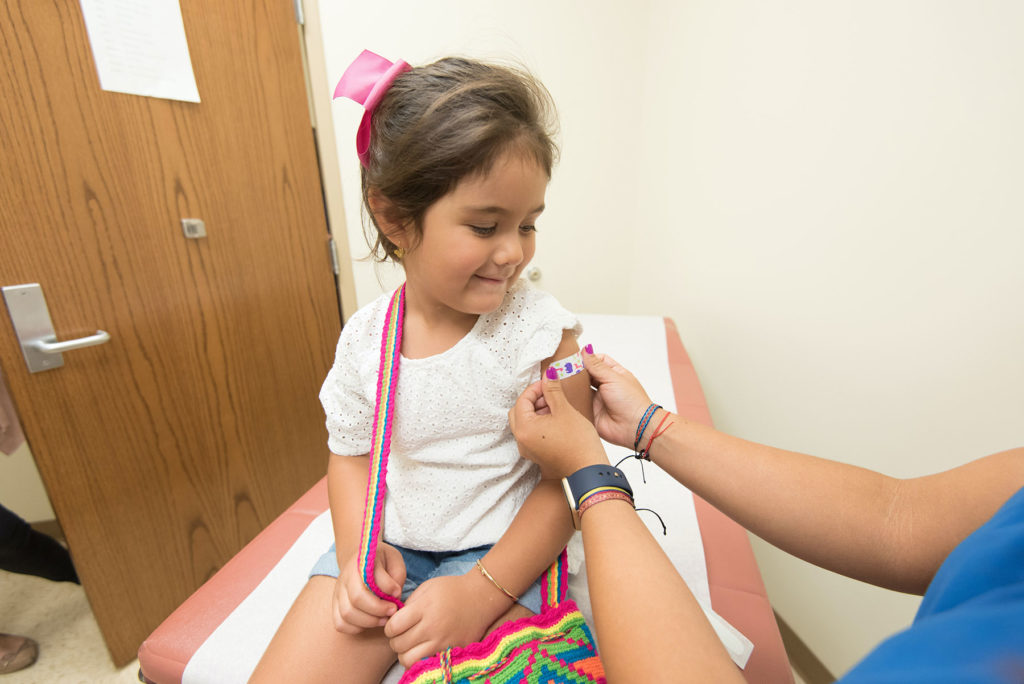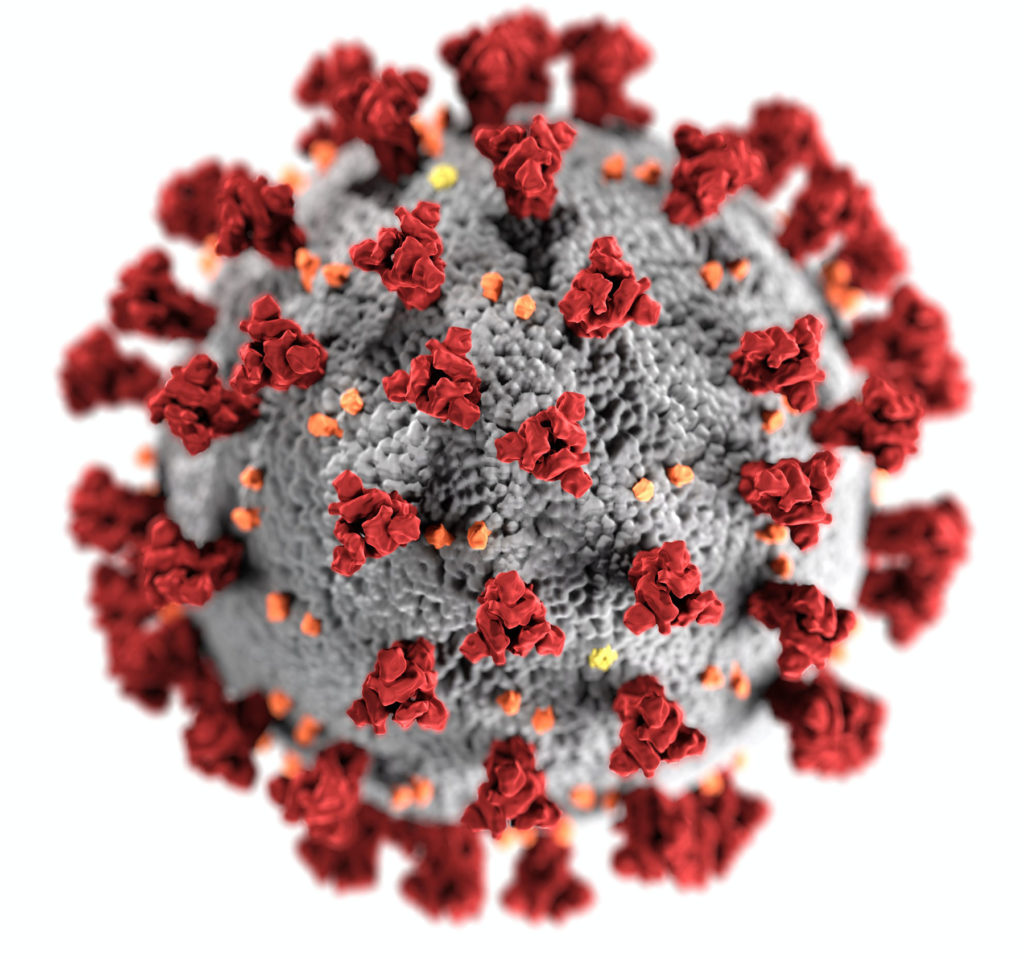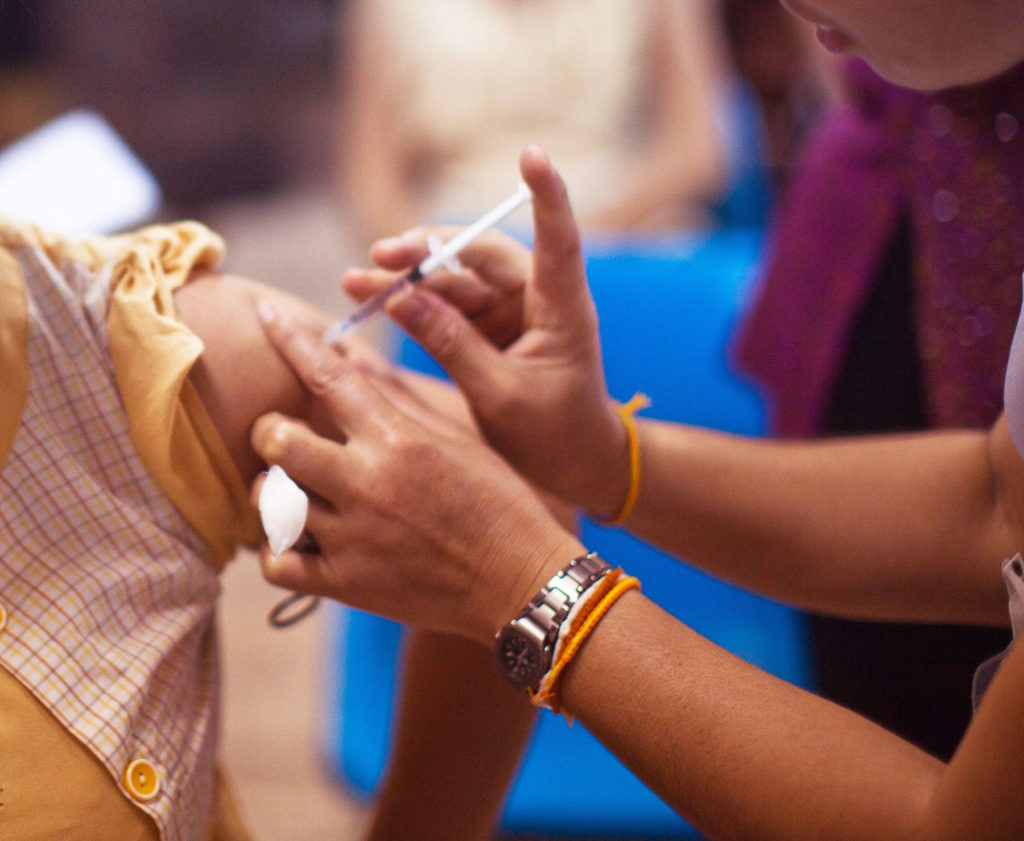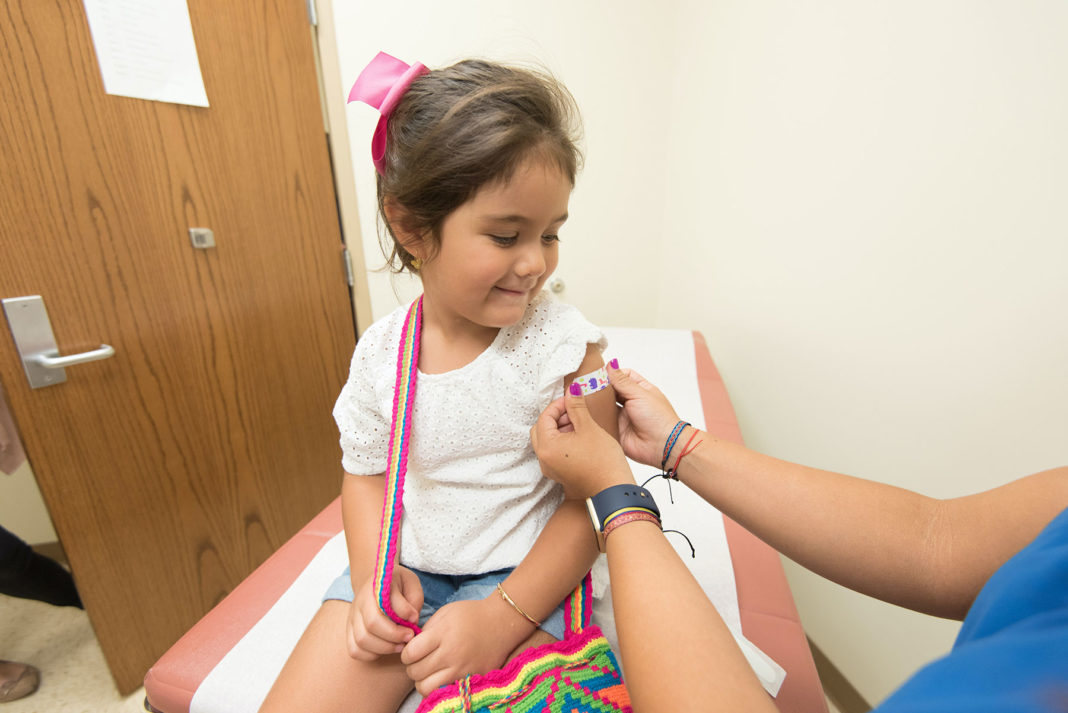Pediatricians are concerned about what the combination of flu and COVID at the same time is looking like.

Vaccination rates dipped across the country in the months after the start of the pandemic, as fearful parents stayed away from medical facilities.
With flu season and a possible resurgence of COVID-19 on the horizon for the fall, health experts are warning parents not to delay their children’s routine vaccinations.
“There has been a real concern among pediatricians,” said Dr. Eve Meltzer Krief of Huntington Village Pediatrics. “There was a time we weren’t seeing children at all and doing mostly telemedicine.”
Vaccination rates dipped across the country in the months after the start of the pandemic, as fearful parents stayed away from medical facilities, worried they could be exposed to the coronavirus, doctors said. But falling behind on vaccines for measles, mumps, pertussis, chickenpox and other childhood diseases also puts kids at risk, doctors said.
Making sure their young patients return in the fall for their flu shots will be another challenge for pediatricians. The CDC already has said that flu shots are especially important this season to prevent the illness and the strain on a health care system already stressed by COVID-19.
“We’re kind of concerned about what the combination of flu and COVID at the same time is going to look like,” Krief said.

Missed or delayed childhood vaccines due to the COVID-19 pandemic are a global issue. The World Health Organization and UNICEF recently released a survey and put out a statement warning of an “alarming decline in the number of children receiving lifesaving vaccines around the world.”
A Centers for Disease Control and Prevention report in May pointed to a notable decrease in orders at the federally funded Vaccines for Children program.
Krief said her practice — like many others — made special arrangements in their offices to ensure social distancing. They even constructed an outdoor tent for families who didn’t feel comfortable entering the office.
“That’s a really important message to get out there,” said Dr. James Schneider, chief of pediatric critical care medicine at Cohen Children’s Medical Center in New Hyde Park. “Health care facilities are actually safer than most places because we are putting a lot of emphasis on safety.”
He said the measles is one example of a disease that can come back quickly.
“When people fall off schedule and don’t get the measles vaccines, we see outbreaks,” he said. “These are life-altering and potentially life-threatening conditions.”

Nicole Sano, a mother of two young boys, said she was initially reluctant to take them for their annual checkups during the pandemic.
“I didn’t think it would be a big deal to push it back,” Sano said. “Then I spoke to my doctor.”
Sano’s pediatrician explained the importance of staying on a vaccine schedule. She said that seeing the precautions taken at the office, which included staying in her car until an examination room was available, helped put her at ease.
“I totally understand — it’s terrifying. You don’t want to expose your children to something,” Sano said. “But if you are not vaccinating them, you are exposing them to something else.”
Krief said that she and other pediatricians at her practice have been successful at luring back wary families in recent weeks.
“Even if kids are not going to school in the fall, there are still potential exposures,” said Krief, who also serves as legislative chair of New York Chapter 2 of the American Academy of Pediatrics. “Any kind of public outing is potential exposure for an infectious disease.”

She pointed to pertussis, or whooping cough, as one example. It may develop as just a cough in older children, but can be deadly for infants.
The vaccine is administered in three doses over the first year of a baby’s life.
“Until that third set of whooping cough vaccine, they are susceptible,” Krief said. “And older kids need their booster shots at 11 so it doesn’t spread to the younger population.”
Even though seasonal flu vaccines are not typically available until October, the CDC already has taken to social media and other sources to remind the public that this is a particularly important year to get vaccinated — adults and children.
Experts said the vaccine is the best way to prevent flu, which can cause serious illness. If you do contract the flu, a vaccination can lessen the symptoms and prevent hospitalizations.
“When I see kids in the ICU [intensive care unit] with critical influenza, more often than not they were not vaccinated,” Schneider said. “If parents don’t bring their kids to get the flu vaccine, I may see a very busy winter in the ICU.”

Note: Pediatrician Tips is strictly a news and information website about pediatrics. It does not provide medical advice, diagnosis, or treatment. This content is not intended to be a substitute for professional medical advice, diagnosis, or treatment. Always seek the advice of your pediatrician, physician or another qualified health provider with any questions you may have regarding a medical condition for any person. Never disregard professional medical advice or delay in seeking it because of something you have read on this website. The opinions expressed in this column are not always those of Pediatrician Tips and are intended to spark discussion about issues pertaining to pediatrics and pediatricians.







